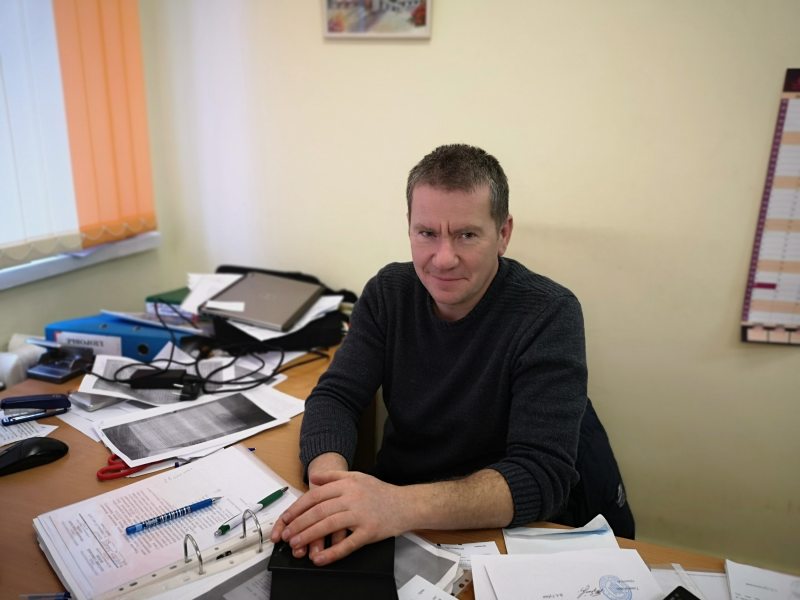Aleh Hrableuski: "The persecution has made it visible how disabling our penitentiary system is”
Human rights defender and lawyer of the Office for the Rights of People with Disabilities, as well as former political prisoner Aleh Hrableuski told Viasna about the current state of people with disabilities and the possibilities of assistance that the Office provides in the new conditions of emigration.

- Human rights activist Aleh Hrableuski while working at the Office for the Rights of People with Disabilities in early 2020
What is the current state of rights for people with disabilities and what is the news on the issue?
I will say this: the only news is that every day we see how persecution has made it visible how disabling our penitentiary system is in terms of medical care, assistance, and conditions of detention.
When I was in a detention center and we watched one man having convulsions, one man sat very calmly and said: "What's the big deal? I did time in the nineties, and we had four corpses taken out of a cell." And people with such a long prison experience are very calm about this, because for them it is some kind of a common phenomenon. The fact that our country has been receiving support for years through UNICEF, through other international structures, support aimed specifically at the penitentiary system... For me, this still remains a question: was there any evaluation of the effectiveness of these programs? After all, when I was in Akrestsina, UNICEF logos hung on the walls. That is, a lot of money was spent on reforming this system, including the medical one, and as a result, apart from the fact that special forces were trained in Germany, there were no other visible changes in the effectiveness of this assistance.
People with disabilities have always been a vulnerable group. But after 2020, have they and their problems receded into the shadows even more?
People with disabilities have not been in the spotlight before as well. But still, thanks to the civil society, the problems of people with disabilities were visible.
And now when a person contacts us – for example, I have people whom I consult – I tell them: "Go to BSDP (the Belarusian Society of Disabled People), go to the media," but no one listens to them there. We say: "Go to the prosecutor's office, go to the police," but there they say: "We don't do this, we will not write about it." So people have been left alone with their problems, and only thanks to the activists who remained in Belarus, problems are privately solved in some way, more or less.
I can say that a lot of people contact us. Even with the situation we find ourselves in. But not on the same scale as before. And it is very dangerous: after all, when you consult a person, the first thing you think of is whether this will harm them or not.
I would like to emphasize that now very often we see such information, statements by our politicians or public activists that civil society has been destroyed in Belarus. But civil society has always been under the control of the state. And people have stayed in Belarus, people work, and to say that it has been destroyed is to humiliate the work of those people who have remained.

















